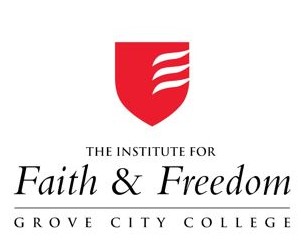Social Media ‘Friends’ and the Pandemic of Loneliness

With untold millions making daily connections through social media, why do more and more Americans complain of a painful lack of real-life friendships? In fact, evidence suggests that online obsessions contribute directly to a damaging, dangerous, new pandemic of loneliness.
As the new year began, the Surgeon General of the United States, Vivek H. Murthy, warned the New York Times, “I believe loneliness is one of the defining health concerns of our time” with serious consequences to both emotional and physical well-being. Like other analysts in recent decades, he cited ample research indicating that “people who are more socially connected live longer and are more protected against stress, depression and declines in memory and language.”
In their new book, The Good Life, psychologists Robert Waldinger and Marc Schulz emphasize this “social fitness” as “the key to mental health, physical health and longevity. Developing skills that enable one to cultivate and maintain positive connections to other people is at least as important as proper nutrition, physical exercise, adequate sleep and the avoidance of harmful habits such as smoking.”
It’s therefore hardly surprising that the current “friendship recession” contributes to the recent sharp declines in American life expectancy, especially for men. A pre-pandemic YouGov poll in 2019 cited 22% among Millennials of all genders who say they have “zero friends” and nearly a third (30%) claiming “no best friends.” Surveying all adult age groups last year, the Survey Center on American Life reported 12% who sadly survive with “no close friends at all” compared with just 2% who described themselves as living without friends in 2003, according to Gallup.
In a provocative recent piece in The Guardian, Anton Cebalo argues for a direct association between internet obsessions and the damaging disconnection of the members of the younger generations. With Americans browsing an estimated seven hours a day, on average, and the number rising every year, 31% as of 2021 said they were online “almost constantly.” Another research study shows that, on average, we check our inboxes 77 times a day.
The impact of such habits has been inescapably established by a parade of dreary statistics. “Mental health among people native to the internet continues to worsen amid an increase in so-called diseases of despair – substance abuse, suicidal ideation, etc – in the US more generally. These were the leading causes of the drop in life expectancy before the pandemic.” In a University of Chicago survey going all the way back to 1972, last year registered as the first time that more respondents reported being “not too happy” rather than “very happy.”
Considering all the time and energy we devote to our internet identities and explorations, it’s worth considering why these numerous and often far-flung connections deliver so few of the psychological rewards of face-to-face interaction with people you know well. One might logically expect that those who win hundreds or thousands of “friends” or “followers” on social media would escape isolation of any kind. But the nature of internet connection is fundamentally, inherently distinct from old and trusted friends who occasionally, at least, manage to see each other.
Looking over the mass of Facebook, Instagram or Tik Tok accounts, the tenor is often more competitive than supportive. Postings invite rivalry as to the elegance of food prepared or consumed, the splendor of remodeling jobs or newly acquired wardrobe, the adorable nature of pets and kids, or the glory of sunsets and accommodations on vacations or adventures. There’s a constant race to keep up with the achievements and indulgences of acquaintances or meant to inspire your admiration or even envy. Gloomy meditations will more likely repel rather than attract potential followers, and it only stands to reason that upbeat, even braggadocios reports draw more recognition and reinforcement than do complaints or self-pity.
But comfort and support through times of trouble represent the very essence of real friendship and contribute more to well-being and the development of significant, durable connections than do the superficial celebration of good times and conspicuous successes. Social media communications can’t replace those long-term, nourishing bonds, but they can swallow up the attention and time investment required to sustain them. No matter how frequently we may check our inboxes, we’re unlikely to find deep satisfaction or soul-stirring inspiration among all the random messages.
Tennessee Williams’ tragic heroine Blanche Dubois couldn’t pierce her own isolation and loneliness with her famous declaration, “Whoever you are, I have always depended on the kindness of strangers.” That strategy didn’t work in A Streetcar Named Desire, and it seems similarly misguided to depend on better results from the phantoms of social media.




















